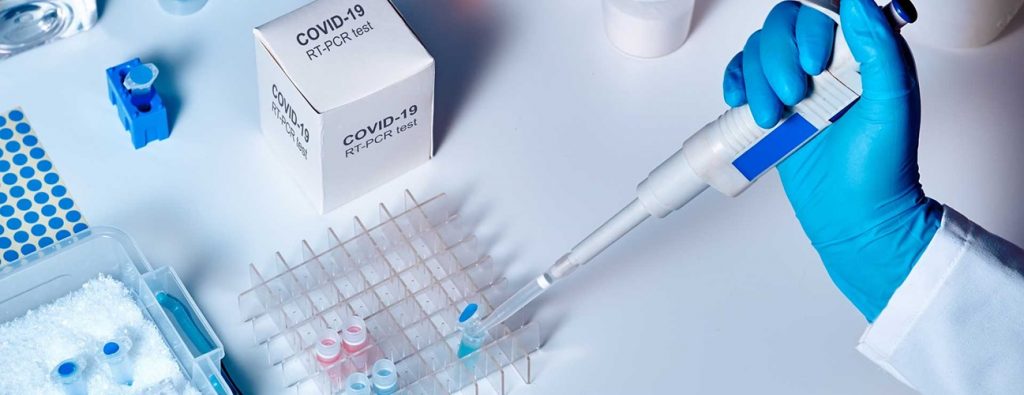PCR tests are usually conducted by the use of thermal cycles whereby each cycle consists of two or three discrete temperature steps. The thermal cycles are usually preceded with a single temperature step at a very high temperature and followed by one hold at the end for final product extension. The level of the temperature and duration of the same is usually dependent on the enzyme used for DNA synthesis, the concentration of bivalent ions and dNTPs in the reaction, and also the melting temperature of the primers. The following are the steps in conducting a PCR test London.
The first step of conducting a PCR test London is initialization. The process is used for DNA polymerases that need heat activation hot-start PCR. It consists of heating the reaction chamber to a temperature of 94–96 °C (201–205 °F), or 98 °C (208 °F) if extremely thermostable polymerases are used, which is then held for 1–10 minutes.
The second step of conducting a PCR test London is denaturation. This step involves heating the reaction chamber to 94-98 °C (201-208°F) for 20 to 30 seconds. This is done to cause DNA melting of the double-stranded DNA template by breaking the hydrogen bonds between complementary bases, making two single-stranded DNA molecules.
The third step of conducting a PCR test London is annealing. This step involves lowering the temperature to 50-65 °C (122–149 °F) for 20 to 40 seconds for annealing of the primers to each of the single-stranded DNA templates. Two different primers, one for each of the two single-stranded complements containing the target region are included in the reaction mixture. Determining the proper temperature for the annealing step is very important. 3–5 °C is the typical annealing temperature for specific hybridization. During this step, the polymerase binds to the primer-template hybrid and begins DNA formation.
The fourth step is elongation. Temperature here depends on the type of Polymerase used. The optimum activity temperature for the thermostable DNA polymerase of Taq polymerase is approximately 75-80 °C (167–176 °F),[13][14] though a temperature of 72 °C (162 °F) is commonly used with this enzyme. In this step, the DNA polymerase synthesizes a new DNA strand complementary to the DNA template strand by adding free dNTPs from the reaction mixture that is complementary to the template in the 5′-to-3′ direction, condensing the 5′-phosphate group of the dNTPs with the 3′-hydroxy group at the end of the nascent (elongating) DNA strand. Aims at amplifying the DNA sample into millions of copies.
Lastly, another step of conducting a PCR test London is final hold. The final step cools the reaction chamber to 4–15 °C (39–59 °F) for an indefinite time, and may be employed for short-term storage of the PCR products.
For more information on the steps of conducting a PCR test London, visit our website at https://www.harleymedic.co.uk/
